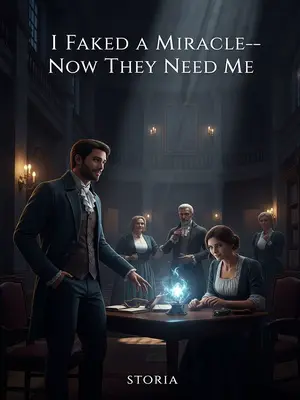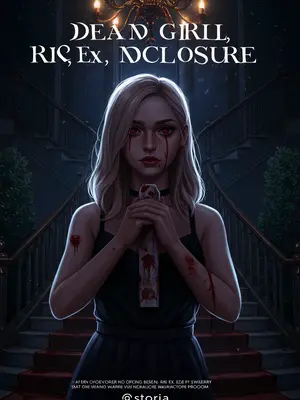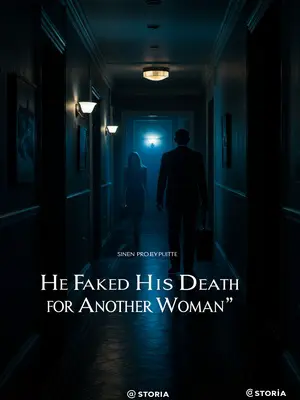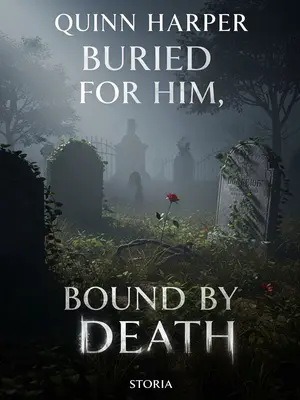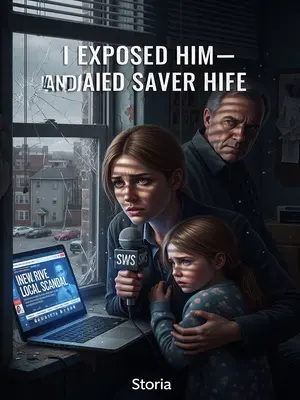Chapter 1: The Wife Who Vanished
Ethan Blackwell and I had been married for several years, but we only ever maintained a chilly, distant sort of respect for each other.
It was the kind of marriage that looked good on paper—two powerful family names joined, polite dinners, but the air between us was always a little too cool—like someone left the parlor window open in December. Sometimes, at night, I’d lie awake and count the cracks in the ceiling, wondering if he was lying awake too, maybe counting cracks on the ceiling from the other end of the house.
Then I fell gravely ill with a disease no one could cure, so he volunteered for duty at the northern border—anything to stay away from me.
He left in a hurry, boots echoing on the hardwood floor. He never looked back. The day he left, the staff whispered about his devotion to duty, but I knew better. Honestly, the cold wind that followed him out the door felt like a relief—for both of us, I think.
I took the chance to fake my death, left the General’s House, and finally got to be myself again.
It was almost laughable how easy it was to disappear. A few staged symptoms, a closed casket, a tearful goodbye from the staff who barely knew me. By the time the funeral procession rolled out, I was already halfway to the city—freedom sharp and sweet on my tongue.
Later, I was shocked to hear my father had passed away.
The news hit like a punch to the gut. I was in a diner off Route 41, halfway through a cup of bad coffee, when the letter arrived. My hands shook as I read the words over and over—as if maybe, if I stared long enough, the meaning would change.
I rushed back to Chicago, and just happened to pass by the hill where they’d buried me that year.
It was a gray, blustery morning. The city skyline loomed in the distance, but the cemetery was quiet—the kind of quiet that seeps into your bones. My footsteps crunched over gravel as I made my way up the familiar hill, my heart thudding, every step echoing in the silence.
But then—
My grave was gone.
I rubbed my eyes. Hard. No mistake—none at all.
The night before my burial, I’d climbed out of the coffin, and the next day watched everything from afar.
I could still remember the feel of the damp earth, the way the night air had tasted after so long in the dark. I’d crouched behind the old maple tree, watching as mourners shuffled past, none the wiser. It felt like I was finally closing one chapter and starting another.
Right next to my grave was a big maple tree. In the warm spring of March and April, its branches were still covered with pale green buds.
A few buds clung to my coat as I brushed past, the scent of maple sap and damp earth heavy in the air. The tree was just as I remembered—solid, ancient, a silent witness to all my secrets.
But the grave mound that should have been tall and rounded was now so flat that not even a blade of grass left, like I’d never been there at all.
It was eerie, unsettling. I knelt down, running my fingers through the dirt, half-expecting to find some trace of myself. But there was nothing—no stone, no flowers, not even a scrap of ribbon left behind.
Hands on my hips, I muttered under my breath—
“Blind grave-robbing jerks! If you’re gonna loot my grave, at least leave the tombstone!”
My voice rang out across the empty hillside, startling a couple of crows from the branches above. Their wings beat the air in a flurry, black feathers scattering like bad omens. I let out a bitter laugh, but it died quickly in the cold wind. Typical. Even my grave can’t catch a break.
My shout startled a few crows into flight. I lowered my eyes, unable to hide my disappointment.
For a long moment, I just stood there, staring at the empty patch of earth. Gone. Just like that. It was as if the world had moved on without me—and maybe it had.
I’d faked my death for years. Even after my grave was dug up, no one noticed, no one cared. Not really.
I wondered if anyone had even paused to ask what happened to the woman buried here, or if I’d just been another name crossed off a ledger. The ache in my chest was sharper than I expected.
I suppose after my death, Ethan Blackwell, as my nominal husband, never came to visit, not once.
It was a cruel thought, but probably true. He was always too busy with duty and honor, the kind of man who never looked back. I wondered if he even remembered my birthday.
I wondered, when he heard about my death at the border back then, what was his reaction?
Did he read the telegram in his tent, not a flicker of emotion? Fold it, tuck it away? Or just hand it off to an aide, done with it?
He probably just breathed a sigh of relief.
I could picture it: a quiet exhale, a loosening of the shoulders. Maybe he even poured himself a drink that night, toasting to the end of an inconvenient chapter.
Our marriage was just for mutual benefit—he wanted my family’s business, I relied on his family’s influence.
We’d both played our parts, smiling for the cameras, making polite conversation at galas and fundraisers. Behind closed doors, we were strangers, each guarding our own secrets. Just strangers. That’s all.
I stayed in his house for three whole years, became friends with the housekeeper and staff, but kept my distance from him, like he was some untouchable god.
The staff had always liked me—Mrs. Carter, the cook, used to sneak me extra slices of pie, and old Sam in the garden would tell me stories about the city in the old days. But Ethan? He was always just out of reach, as if an invisible wall stood between us.
Young General Blackwell—who in Chicago doesn’t know the name? Seriously.
His face was on the front page of the Tribune every other week—sometimes in uniform, sometimes in a tuxedo, always with that same steely look in his eyes. People whispered about him in grocery store lines and at church picnics, half in awe, half in fear.
Usually a quiet and handsome gentleman, but on the battlefield, he was the cold-faced war hero whose name made enemies tremble.
He had a presence that filled the room, even when he said nothing at all. At military banquets, officers stood a little straighter when he walked in. Even the mayor deferred to him.
Just by standing there, he gave off this dangerous vibe. I always felt a little intimidated.
Sometimes I’d catch him watching me from across the room, eyes unreadable. It was like being under a microscope—every flaw magnified, every word weighed.
If I hadn’t overheard the news—that Martin Rivera, the famous merchant who sold medicinal supplies downtown, had died of pneumonia—I probably never would’ve come back. Not in this life.
The news had come from a passing neighbor, whispered over the fence as I tended a window box of faded pansies. I’d stood there, frozen, the trowel slipping from my hand. Duty pulled me back, like it always did.
The Rivera house was draped in mourning black.
Black ribbons hung from the gateposts, and the porch lights were dimmed. The air inside was heavy with the scent of lilies and old wood, the kind of hush that settles over a house in mourning.
Kneeling in the front parlor in black suits and veils were my father’s longtime partner and my younger brother, Lucas Rivera, who had grown much taller.
Lucas’s hair was slicked back. His suit was a size too big, sleeves brushing his knuckles. He looked up as I entered—eyes red-rimmed, but bright with recognition.
I put on a thick scarf and entered the mansion with the mourners.
I kept my head down, moving quietly among the guests, the wool scratching at my chin. I could feel eyes on me, suspicion simmering beneath the surface.
I’d originally planned to just muddle through—offer a bouquet, bow my head, and leave—but the partner noticed me.
She had the kind of gaze that could cut glass, lips pursed in a permanent frown. I tried to slip past, but her hand shot out, fingers like steel.
She grabbed my hand, her tone unfriendly:


